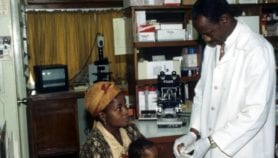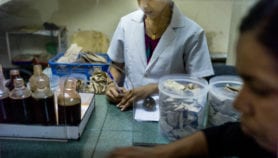Send to a friend
The details you provide on this page will not be used to send unsolicited email, and will not be sold to a 3rd party. See privacy policy.
In Brazil, one in five babies dies before reaching the age of one because of a genetic disorder.
In this article in Science, Mayana Zatz describes her research on genetic diseases and the ethical aspects of working with patients who suffer from them.
Zatz, who heads the Human Genome Research Centre of the University of São Paulo, specialises in research on Duchenne muscular dystrophy, a muscle wasting disorder that is often fatal.
Recently, Zatz campaigned in favour of allowing research using stem cells from human embryos produced by in vitro fertilisation. On 2 March Brazil’s government passed a law approving such research (see Brazil says ‘yes’ to GM crops and stem cell research).
The law, says Zatz, will renew hope for people with genetic disorders for which there are no treatments. She is also aware that the law will bring new challenges.
Genetic counsellors will have to explain to patients that they will have to wait several years before treatments become available. But Zatz believes they will welcome the news that researchers are working to find solutions to their conditions.













